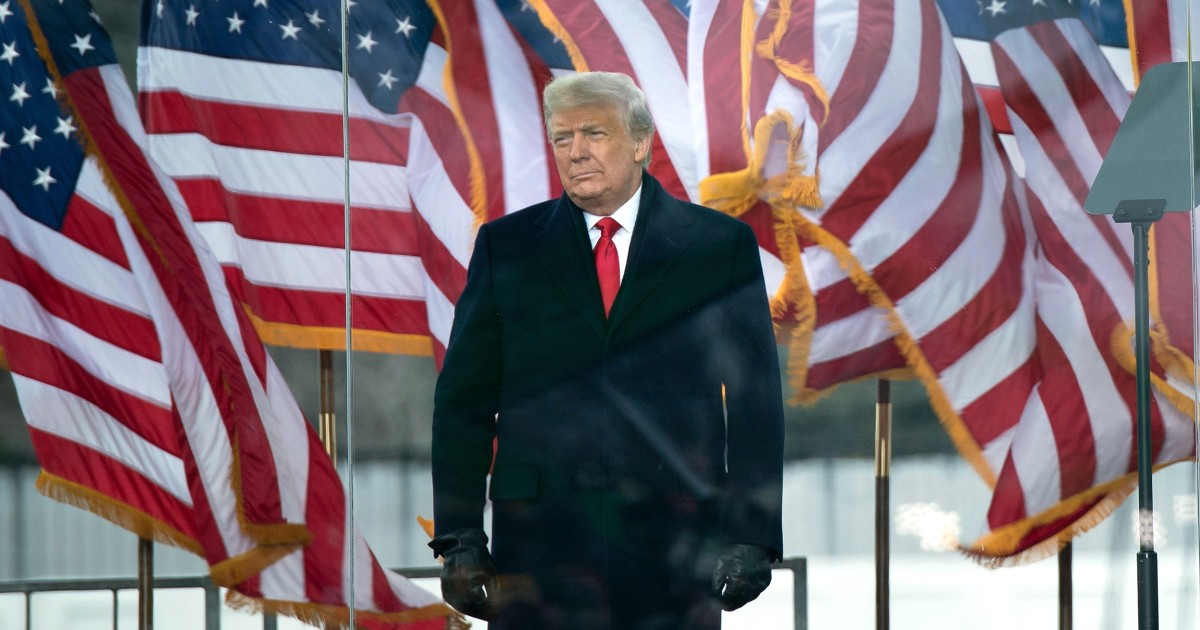
This week, Attorney General Merrick Garland dealt dual blows to former President Donald Trump’s legal defenses. He did this via decisions involving former Trump acting Attorney General Jeffrey Rosen and Rep. Mo Brooks, R-Ala.
Both Department of Justice decisions undermine claims of “executive privilege” that Trump is sure to assert if he is called before the House committee.
Both Department of Justice decisions undermine claims of “executive privilege” that Trump is sure to assert if he is called before the House committee investigating the Jan. 6 attack on the Capitol. The committee is probing, among other things, his role in inciting the insurrection.
Garland’s punches carry extra force in the credibility department. In prior decisions, he has adhered to predecessor William Barr’s precedent, showing the current attorney general to be an honest broker of legal issues around the former president.
On Monday, the DOJ sent letters to Rosen and other former Trump DOJ officials who had sought the department’s opinion on whether attorney-client and other privileges protect them from House of Representatives deposition requests.
Typically, the DOJ asserts privilege broadly to preserve the confidentiality of executive branch communications. But Garland’s lieutenant staked out a different view in this case. The letters said “the extraordinary events” of the Jan. 6 riot “constituteexceptional circumstances warranting an accommodation to Congress in this case.”
This decision, which is sure to be litigated first, would mean former DOJ officials cannot avoid testifying. And courts historically defer to the department’s opinions in these matters. If they do, the same reasoning would apply to inevitable Trump efforts not to testify before Congress.
Garland’s second decision was addressed to the Alabama congressman, Brooks. He is currently being sued by his colleague Rep. Eric Swalwell, D-Calif., on an accusation of helping foment the riot. Brooks has countered that when he spoke to supporters on the morning of the riot, he was acting as a federal employee and therefore is entitled to immunity under theWestfall Act. He asserts this as acomplete defense to Swalwell’s allegations.
For this defense to succeed, Brooks needed the attorney general to certify that he was acting as a congressman during his pre-riot rabble-rousing. Garland declined to do so, emphasizing that the speeches were in the nature of campaigning, not congressional duties.
Importantly, Brooks had declared that rallygoers should “start taking down names andkicking ass.” Hence, any decision that Brooks was acting as a congressman would have led to an absurd conclusion: that promoting a violent insurrection against the peaceful transfer of power was part of a lawmaker’s job.
Because Garland had previously backed Barr’s decision todefend Trump in E. Jean Carroll’s defamation suit, DOJ’s attitude toward Brooks was hard to predict. Importantly, like Brooks, Trump has also asserted that he was acting within the scope of his employment when he spoke at the pre-insurrection rally. For that reason, there was concern that consistency in representing the executive branch might compel Garland to defend Brooks. Garland managed to extract himself deftly from his position between a rock and a hard case, as it were.
Like Brooks, Trump has also asserted that he was acting within the scope of his employment when he spoke at the pre-insurrection rally.
The fact that Garland distinguished between these superficially similar fact patterns underscores the principle central to the attorney general’s stewardship: Therule of law governs, not politics.
Which brings us to the three main implications of Garland’s decisions.
First, the noncertification of Brooks’ Westfall Act defense likely spells big trouble for a Trump assertion of that defense in Swalwell’s suit. Like Brooks’ speech, Trump’s rant at the Ellipse referred multiple times to the election, placing him squarely into campaign mode rather than presidential mode.
Second, DOJ’s letter to Rosen characterizing the Jan. 6 insurrection as an exceptional circumstance logically applies equally to Trump when he asserts executive privilege against any House committee call for his or others’ testimony.
Third is a point easily overlooked but potentially devastating: Executive privilege does not prevail when third parties are within earshot of an otherwise privileged communication. Trump spent time with many others, including Brooks, in a tent that was a staging area for speakers. Pre-rally chat that could be heard by caterers, sound system operators, private security or other campaign workers would not be privileged.
Trump’s predictable assertion of privilege before the investigating committee could result in dilatory litigation and efforts to “run out the clock” to avoid an accurate account of the events of Jan. 6. The committees need to move expeditiously to ensure their already delayed investigations are not hobbled.
Source: | This article originally belongs to Nbcnews.com










